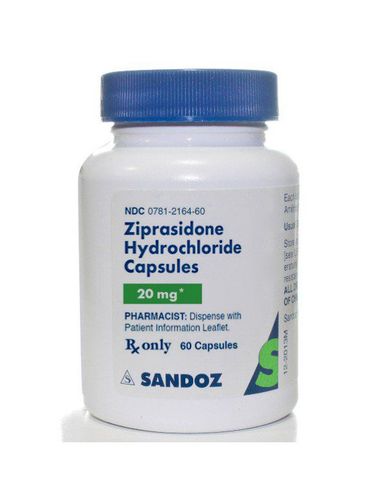This is an automatically translated article.
Researchers warn that teens who don't get enough sleep may be more likely to develop heart disease risk factors, such as high blood pressure and excess body fat
Canadian researchers surveyed more than 4,100 teenagers and recorded an average of 7.9 hours of sleep per night on weeknights and 9.4 hours per night on weekends. Nearly 20% of young people reported poor quality sleep during the week and 10% reported poor sleep on weekends.
In a study of 829 teenagers, researchers from Kaiser Permanente Northern California looked at how long they slept each night and how long it took to fall asleep from first sleep to waking. They don't rely on what teenagers tell them; instead, they use a wrist-worn device to measure sleep and physical activity. They also measured the participants' body fat, blood pressure, lipids and insulin resistance. Only 2.2% of study participants got the recommended amount of sleep per night, and 31% slept less than 7 hours per night. Children with less sleep and lower sleep efficiency were also the least healthy for their hearts, with more body fat, higher blood pressure, and lower levels of HDL ("good") cholesterol. Even after the researchers adjusted for the adolescents' physical activity levels, reported TV viewing time, and diet quality, poor sleep was associated with health indicators. worse cardiovascular health.
According to research published in CMAJ (Canadian Medical Association Journal), about 6% of children reported having to use drugs to sleep.
Sleep disturbance, described as frequent nighttime awakenings, early awakening, difficulty falling asleep, restlessness and bad dreams,... Sleep disturbance is associated with a number of factors elements include meals high in fried foods, soft drinks, sweets and caffeinated beverages; little exercise; and more "screen" time (playing video games, using the computer, and watching television).
In turn, higher sleep disturbance scores, more sleep deprivation during puberty was associated with higher cholesterol levels, higher blood pressure, higher body mass index (BMI) and larger waist size – here Both are potential risk factors for heart disease.
Study author Dr. Brian McCrindle, a cardiologist at Children's Hospital in Toronto, said in a press release. "In addition to these health risks, previous studies have shown that Poor sleep also has a negative impact on academic performance. Parents should monitor caffeine intake, bedtime and bedrooms with too many media devices."

Trẻ thiếu ngủ, không đủ giấc có thể có nhiều khả năng phát triển các yếu tố nguy cơ mắc bệnh tim
According to the study's lead author, Dr Indra Narang, a respiratory physician and director of sleep medicine at Children's Hospital, "These findings are important, because sleep disorders are common in adolescence. adulthood and cardiovascular disease risk factors spanning from childhood to adulthood." Karol Watson, professor of medicine at UCLA's David Geffen College of Medicine and director of the UCLA Center for Women's Heart Health who was not involved in the study, said: "The metabolic consequences of sleep Not enough sleep is huge. The circadian clock instructs the body to make certain hormones when we are awake and asleep in rhythmic coordination. With poor sleep, the body gets confused and goes into self-preservation mode, which means making more of the substances the body needs when under stress. For example, your blood sugar goes up, making you insulin resistant and at higher risk of diabetes. "
About 5 years ago, Watson noticed a disturbing trend - more and more teenagers were coming to her for high blood pressure and high cholesterol. So she created the Youth Heart Health Program. “Teens already know what to eat and how much exercise is right for them,” says UCLA teenager, in which teens teach their friends about heart-healthy behaviors. and should not smoke, but they often don't know how to get enough sleep."
Also in research, doctors suggest that trying to improve sleep habits early in life might be one way important to prevent heart disease later in life.

Thói quen ngủ sớm trong cuộc sống có thể là một cách quan trọng để ngăn ngừa bệnh tim sau này
2. Good tips for young people to get enough and correct sleep Limit electronic devices. Power off devices 30 minutes before bedtime and ask to place phones, laptops, tablets, and any other devices somewhere outside the room. “Just knowing that there is a device within reach they can get and use, keeps them awake,” said Dr. Watson. "Besides, bright screens suppress the release of the sleep-promoting hormone melatonin."
Do not eat or drink caffeine after 3 pm. "Caffeine isn't just about coffee, it's about things like tea and energy drinks," says Dr. Watson. "Most caffeine is cleared from the body after about four to five hours, but in some people it lasts longer."
Set sleep goals. Ask your child to use a smartphone alarm to remind them when it's time to start going to bed.
Regular schedule of activities. Don't count on oversleeping on weekends. Dr. Watson says: “Accumulated sleep is important, but we must also get enough sleep every night.
If you have a need for consultation and examination at hospitals and clinics of Vinmec Health system nationwide, please contact the Website for the best service.
Please dial HOTLINE for more information or register for an appointment HERE. Download MyVinmec app to make appointments faster and to manage your bookings easily.













